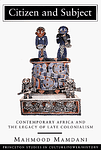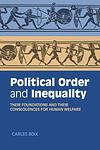The Greatest French, Unknown "Nonfiction, Political" Books Since 1990
Click to learn how this list is calculated.
This list represents a comprehensive and trusted collection of the greatest books. Developed through a specialized algorithm, it brings together 305 'best of' book lists to form a definitive guide to the world's most acclaimed books. For those interested in how these books are chosen, additional details can be found on the rankings page.
Genres
The "Political" category of books encompasses works that explore the theory, practice, and history of government and politics. These books may cover topics such as political ideologies, political systems, political institutions, political movements, and political leaders. They may also examine the relationship between politics and other areas of society, such as economics, culture, and international relations. Political books can be both informative and thought-provoking, offering readers insights into the complexities of the political world and the challenges of governing in a democratic society.
Countries
Date Range
Reading Statistics
Click the button below to see how many of these books you've read!
Download
If you're interested in downloading this list as a CSV file for use in a spreadsheet application, you can easily do so by clicking the button below. Please note that to ensure a manageable file size and faster download, the CSV will include details for only the first 500 books.
Download-
1. Citizen And Subject by Mahmood Mamdani
"Citizen and Subject" explores the complex relationship between citizenship and identity in postcolonial Africa. The author critically examines the concept of citizenship as a tool for exclusion and domination, particularly in the context of colonial and postcolonial states. Through a comprehensive analysis of case studies from Uganda and South Africa, Mamdani delves into the historical processes that have shaped the formation of citizenship and subjecthood, shedding light on the enduring legacies of colonialism and the challenges faced by marginalized groups in attaining full citizenship rights.
The 5914th Greatest Book of All Time -
2. The Political Thought Of Karl Popper by Jeremy Shearmur
This book offers a detailed examination of Karl Popper's political philosophy, exploring his views on liberalism, democracy, and the open society. It delves into Popper's critique of totalitarianism and historicism, his defense of the open society against its enemies, and his thoughts on the role of critical rationalism in fostering an environment of tolerance and intellectual openness. The author analyzes Popper's influence on contemporary political thought and assesses the practical implications of his ideas for current political debates, providing a comprehensive overview of Popper's contributions to the understanding of modern democratic theory.
The 6447th Greatest Book of All Time -
3. Capital in the Twenty-First Century by Thomas Piketty
This book provides a comprehensive analysis of the dynamics of capital accumulation and distribution over the last few centuries. The author argues that the rate of capital return in developed countries is persistently greater than the rate of economic growth, leading to high levels of wealth inequality. The book further suggests that the level of income inequality is not primarily a result of differences in individual labor income but rather the result of differences in capital ownership and the income derived from it. The author proposes a global tax on wealth to prevent soaring inequality.
The 6638th Greatest Book of All Time -
4. Capitalism, Socialism, Ecology by Andre Gorz
In "Capitalism, Socialism, Ecology," the author explores the complex relationships and conflicts between economic systems and environmental sustainability. He critically examines the failures of both capitalism and real-existing socialism in addressing ecological crises, arguing that neither system is adequately equipped to tackle the environmental challenges of our time. The book advocates for a new ecological order that transcends traditional economic paradigms, proposing a radical restructuring of societal values and economic practices to prioritize sustainability, social justice, and human well-being over profit and growth. Through this analysis, the author contributes to the broader discourse on environmental politics and the search for viable alternatives to unsustainable economic models.
The 6687th Greatest Book of All Time -
5. Acts Of Resistance by Pierre Bourdieu
"Acts of Resistance" is a critical examination of the negative impacts of neoliberal policies on various aspects of society, including culture, education, and the economy. The book argues that these policies, which prioritize market values and corporate interests, undermine the foundations of democratic life and social justice. The author, a prominent sociologist, calls for intellectuals and citizens to resist these trends by defending the values of public welfare and social solidarity. Through a series of essays, the book explores the ways in which power and media manipulate public opinion and emphasizes the importance of critical thinking and collective action in the face of growing inequality and social fragmentation.
The 7784th Greatest Book of All Time -
6. Political Order And Inequality by Carles Boix
This book delves into the intricate relationship between political dynamics and social inequalities, offering a comprehensive analysis of how political institutions shape economic disparities and vice versa. The author argues that the formation of political order and the distribution of resources within a society are deeply interconnected processes, influenced by historical events, economic pressures, and power struggles. Through a detailed examination of various political systems and historical contexts, the book presents a theoretical framework for understanding the mechanisms through which political stability and inequality are mutually reinforced, suggesting that the path to a more equitable society lies in the careful restructuring of political institutions to address the root causes of inequality.
The 9076th Greatest Book of All Time -
7. The Age of Surveillance Capitalism by Shoshana Zuboff
The book explores the emergence of surveillance capitalism, a new form of capitalism that thrives on personal data. The author details how tech companies, such as Google and Facebook, collect and use personal data to predict and modify human behavior as a means to produce revenue and market control. The book delves into the consequences of this phenomenon on economy, society, and democracy, warning about the dangers of unchecked data collection and manipulation.
The 9989th Greatest Book of All Time
Reading Statistics
Click the button below to see how many of these books you've read!
Download
If you're interested in downloading this list as a CSV file for use in a spreadsheet application, you can easily do so by clicking the button below. Please note that to ensure a manageable file size and faster download, the CSV will include details for only the first 500 books.
Download





